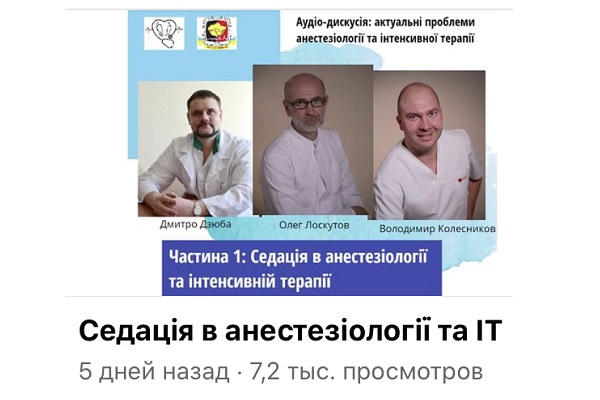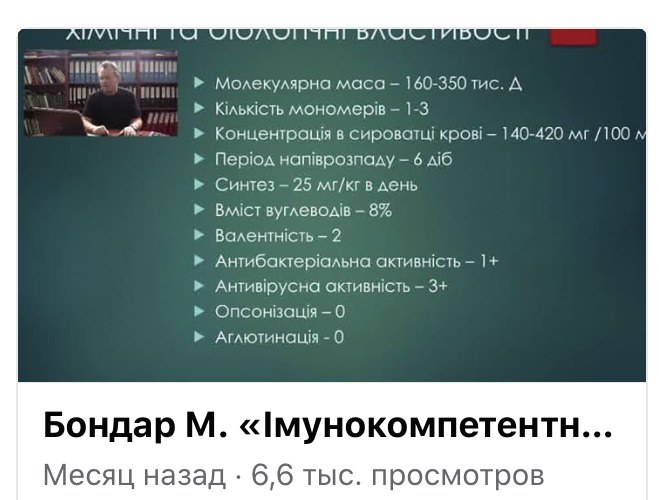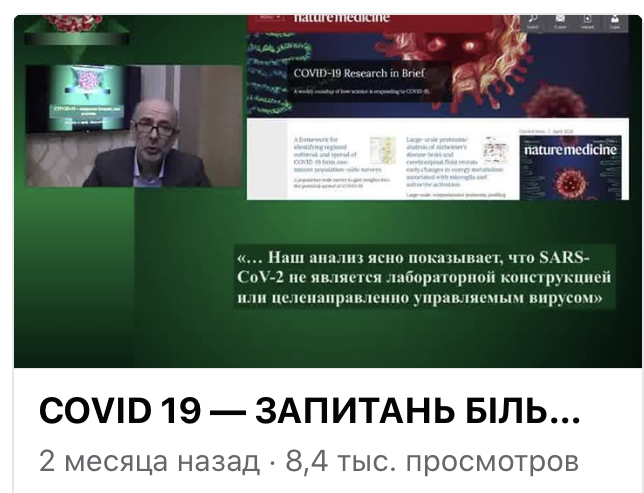The pandemic declared by the World Health Organization through COVID-19 remains a pressing issue for both human health and life, including their work. Despite these objective difficulties, the Department of Anesthesiology and Intensive Care was able to quickly and effectively change the regime and conditions of its work.

Employees of the Department recorded and posted on the Internet resources 17 video courses. For this purpose, the Department used the recently created "Medical Educational Portal", which gained popularity on social networks Facebook, Telegram, Instagram and YouTube.
Today, the total number of subscribers of this portal is over 9,000 people. Among them, there are 7,900 doctors of various specialities from Ukraine and more than 1,000 foreign colleagues from 12 countries: Poland, the USA, Germany, Italy, the Czech Republic and others.
The staff of the department seeks to highlight the most important problems of modern medicine. Thus, they organized and conducted an online school "COVID-19. An overview of problematic issues" and a webinar on COVID-19. The number of views of individual video lectures ranged from 2,700 to 13,000.
Most classes for the interns of the second year were conducted remotely (a total of 28 lectures and 30 seminars).
There were also 2 cycles of thematic improvement (TI) in the form of distance learning: "Diagnosis and intensive care of emergencies", "Current issues of diagnosis and intensive care of acute poisoning." The plan for students to fill the TI courses for the first half of the year is 100% fulfilled.

19 educational, methodological and scientific articles were prepared (among them 3 in journals indexed in Scopus database), 2 declaratory patents for inventions were obtained during the quarantine.
Employees of the department have performed 289 anaesthesias of I-II level of complexity, and 116 of III-IV level of complexity from March till June 2020. During this period, the number of patients examined by the Department’s staff at clinical bases was 267, and the number of consultations was 164.

Currently, the department is introducing a new form of distance learning in the format of a series of audio discussions (so-called podcasts) on current issues of anesthesiology and intensive care, which are gaining popularity on the web pages of the department (total number of listens to the first discussion was 7.2 thousand). In future, it is planned to continue the trend towards diversification of forms of education with interns and doctors.